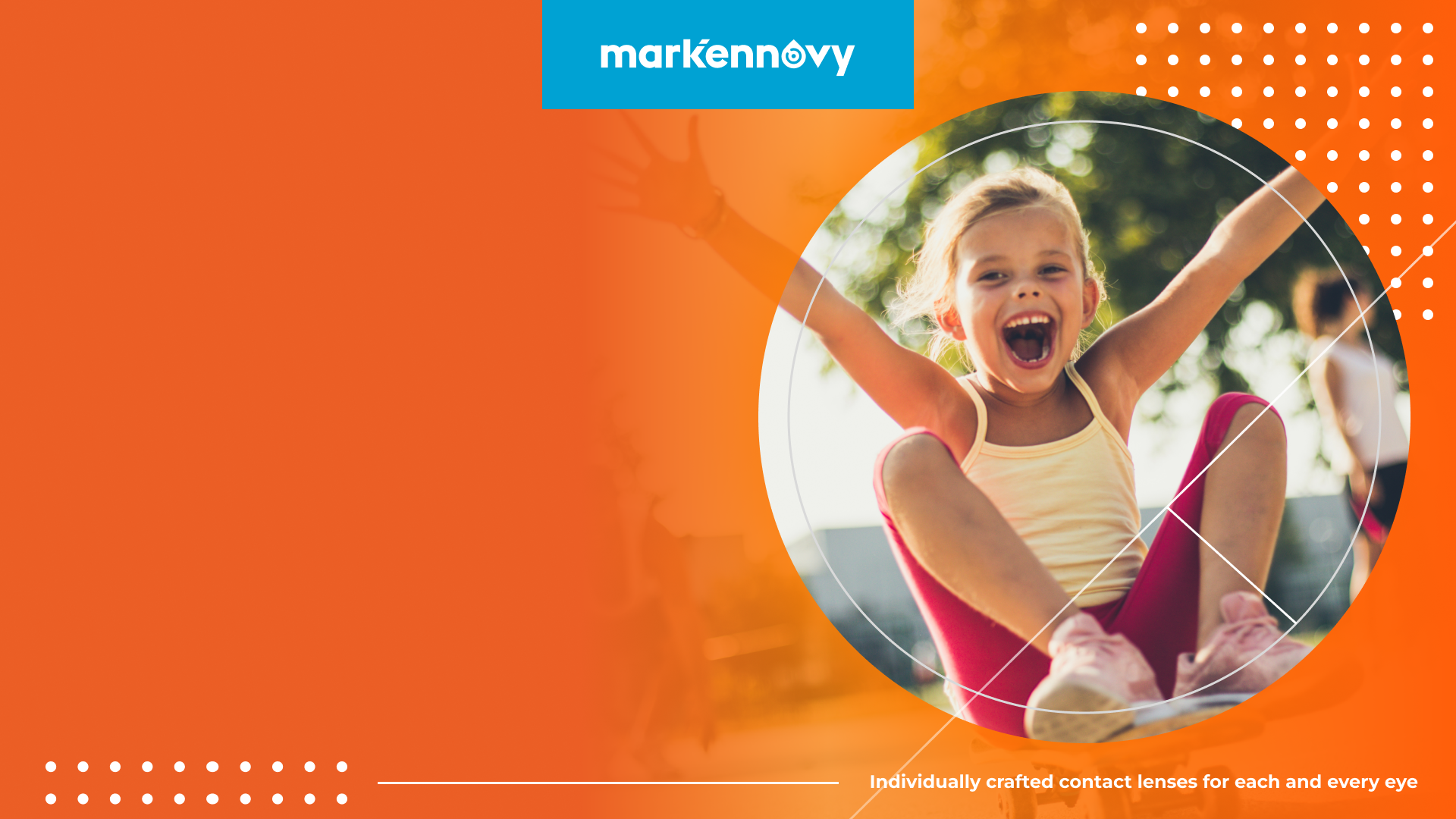New Article Highlights Promising Results of Myopia Management Study in Children with MYLO Contact Lenses

Myopia, a common eye problem, has experienced a notable increase in recent decades. This has raised concerns about the visual health of future generations, especially when it comes to myopia in children.
This condition not only impacts the quality of vision but is also associated with more serious eye problems. Some examples include glaucoma, cataracts, and retinal detachment. The alarming increase in myopia cases has triggered a constant search for effective strategies to slow its progression, particularly in school-aged children.
However, there is good news. Recently, an article1 has been published about a study that is addressing the growing global concern about myopia progression in children. This prospective non-randomized study was conducted at the Integral Ophthalmology Clinic in Bilbao, Spain. It has been led by a team of prominent experts, including Sergio Díaz-Gómez, Mercedes Burgos-Martínez, Padmaja Sankaridurg, Amaia Urkia-Solorzano, and Jesús Carballo-Álvarez.
The main objective of this study was to evaluate the efficacy of MYLO, extended depth of focus (EDOF) contact lenses by mark’ennovy, in managing myopia in children aged 6 to 13. Published in the prestigious American Journal of Ophthalmology, the recent results offer an encouraging perspective for both parents and eye health professionals.
Breaking down the Study on the Progression of Myopia in Children
Participants and Study Design
Ninety myopic children of European origin, with a myopia progression greater than -0.50 D in the last 12 months, were recruited. To date, the data presented covers a period of 2 years, from September 2019 to June 2022. However, the study is still ongoing, allowing for data collection over longer periods. The participants were assigned to either the contact lens group (45 children) or the glasses group (45 children) based on their preference.
MYLO Contact Lenses
The contact lens group used mark’ennovy’s MYLO. It is a soft silicone hydrogel lens designed to correct myopia and slow its progression. MYLO features an EDOF design that provides extended depth of focus equivalent to 1.50 D. This unique design aims to minimize subjective visual symptoms such as ghosting and halos, offering a comfortable and efficacious user experience.
Methods and Procedures
Ocular and visual measurements were taken every 6 months during the study. The efficacy of myopia control was evaluated by the difference in axial length progression between the contact lens and glasses groups, defined as the Cumulative Absolute Reduction in Axial Elongation (CARE2). Similarly, the difference in spherical equivalent progression between the experimental and control groups was also calculated.
Axial and Spherical Changes in Childhood Myopia
The results revealed a significant reduction in myopia progression in the contact lens group, supporting its effectiveness compared to conventional glasses.
The difference in axial length was notable, with 0.37 ± 0.04 mm in the contact lens group compared to 0.66 ± 0.03 mm in the glasses group. Specifically, the CARE value obtained was 0.29 ± 0.06 mm, indicating a noticeable decrease in axial elongation in the contact lens group compared to the glasses group.
Furthermore, regarding the change in spherical equivalent, a substantial reduction was observed in the contact lens group, with a value of -0.50 ± 0.34 D.
Impact on Visual Acuity
In terms of visual acuity, the contact lens group showed a slight decrease compared to the conventional lens group. However, this difference was less than one line. This small sacrifice in visual acuity is offset by the notable benefits in myopia progression. In addition, it should be noted that no differences were found in contrast sensitivity values between both groups.
The absence of dropouts in this study is noteworthy, possibly attributable to the individualized choice of lenses by the participants, as well as the close follow-up by the optometrist with reviews every 3 months.
The visual performance, safety, and subjective acceptance of MYLO contact lenses were favorable, and all participants expressed their desire to continue using them.
Although limitations are recognized, such as the lack of randomization and data collection at a single center, it is argued that this approach more accurately reflects clinical reality and patient motivation in myopia management. The clinical applicability of MYLO lenses in the effective management of myopia in children justifies the need for further studies with a greater diversity of participants and a more rigorous design.
Conclusion: mark’ennovy and Effective Myopia Control in Children
In summary, the results suggest that MYLO contact lenses are a clinically significant option for slowing down the progression of myopia in children in the Caucasian population. This study offers promising insights for personalized management of myopia progression in the future.
Thus, the research results represent an important step towards effective myopia control in children. MYLO contact lenses offer hope, indicating a significant advancement in the search for solutions that not only improve vision but also mitigate the ocular risks associated with myopia progression.
Access the full article here to learn all the details!
References
- Díaz-Gómez S, Burgos-Martínez M, Sankaridurg P, Urkia-Solorzano A, Carballo-Álvarez J. Two-year myopia management efficacy of extended depth of focus soft contact lenses (MYLO) in Caucasian children. Am J Ophthalmol. 2024;260:122–31. http://dx.doi.org/10.1016/j.ajo.2023.11.025
- Brennan NA, Toubouti YM, Cheng X, Bullimore MA. Efficacy in myopia control. Prog Retin Eye Res. 2021;83:100923. doi:10.1016/j.preteyeres.2020.100923
14
February 2024







 Academy
Academy
Leave a Reply